Banking on apples: How women in rural Nepal are tackling climate challenges
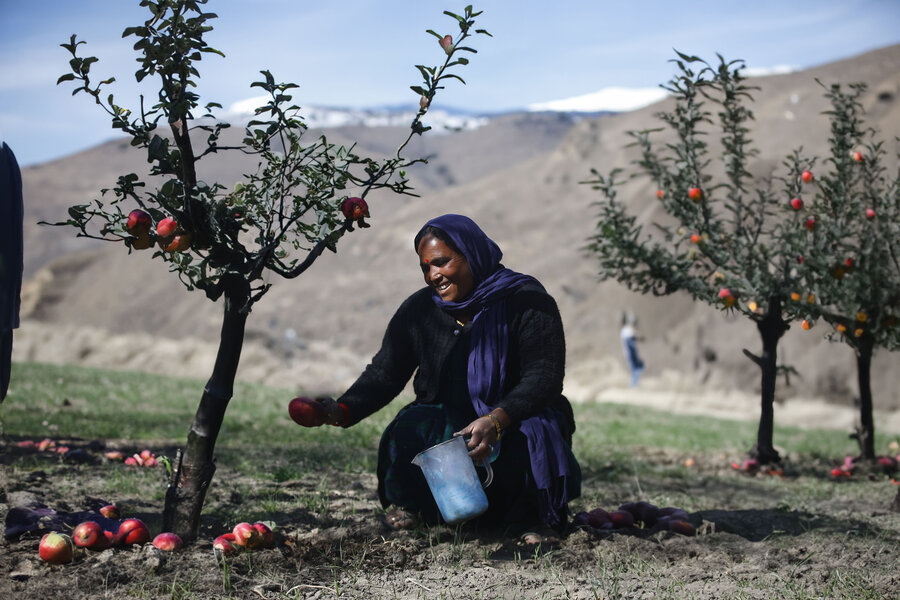
An apple orchard grows near where Tara Pariyar’s husband was shot dead during Nepal’s civil war, two decades ago. Heavy with bright red fruit and backdropped by snowcapped mountains, it attests to the 50-year-old farmer’s long struggle to overcome social stigma, economic adversity and grief, in the remote mountain village where she lives.
“Our life has always been on the brink,” Tara says. “Even providing two square meals a day has been a difficult ordeal.”
Today, she is a successful grower in western Nepal, producing not only apples but also a raft of other crops and small livestock, thanks to a climate change adaptation project aimed to build resilience, rolled out by the World Food Programme (WFP) and the Government of Nepal.
Reaching roughly 66,000 people in seven rural municipalities of western Nepal, the initiatives aim to cushion the impact of extreme weather in a country which ranks among world's most vulnerable to climate hazards. In the remote Karnali mountains where Tara lives, they also offer a road out of deep hunger and poverty for subsistence farmers, who are particularly vulnerable to weather extremes.
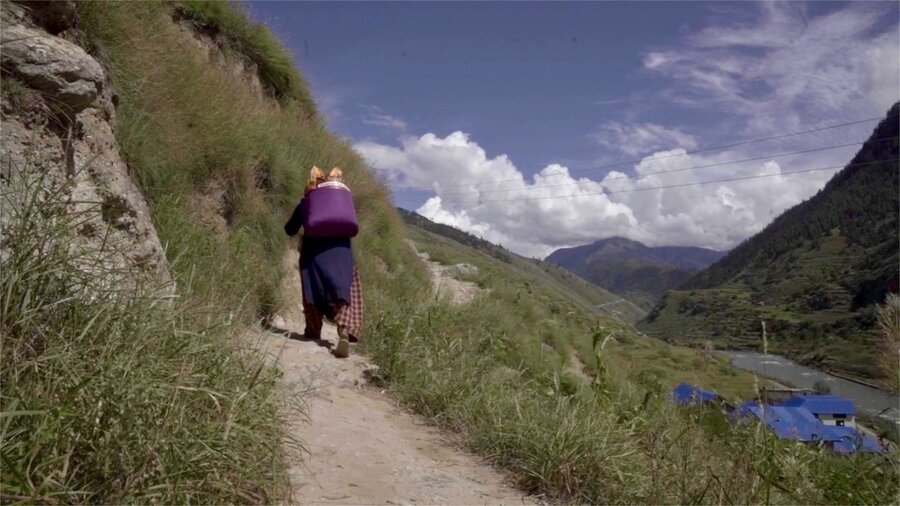
“With recurring evidence of severe climate change impacts on food security, there is a need to invest in programmes that are more sustainable, more inclusive and more resilient to future climate shocks,” says Robert Kasca, WFP Nepal Representative and Country Director.
Scraping by
Tara’s story is not just a testament of climate resilience - it also echoes that of many women farmers in Nepal who face multiple barriers to empowerment. Her life went into a tailspin in 2003, after fighters gunned down her husband and two relatives before her eyes.
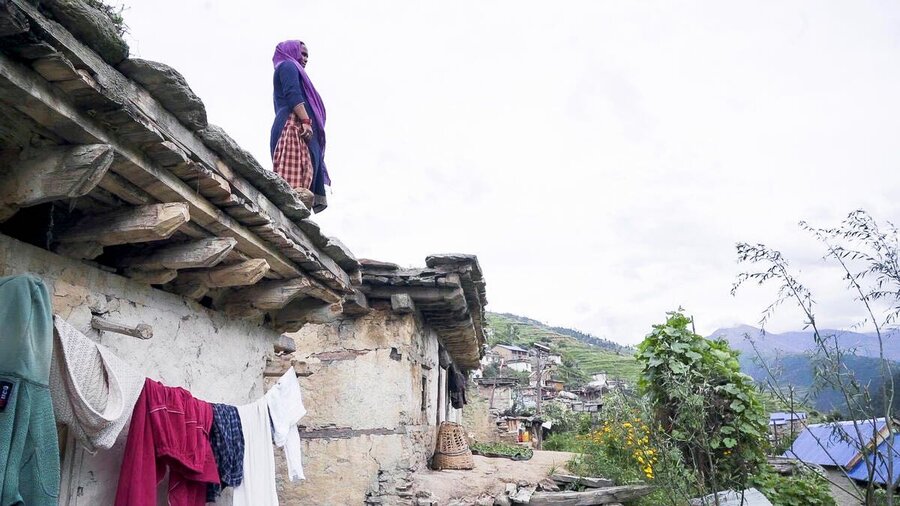
She suddenly faced the daunting challenge of providing for her in-laws and three young children. Neighbours taunted her for being a Dalit, a marginalized group in Nepal. Her in-laws harassed her for being a widow.
For more than a decade, Tara cultivated a small piece of land behind her home, but it yielded only enough to sustain her family. “Only if we got lucky, we would have a little extra to sell and give our children some chicken or eggs that week,” she recalls.
Change came in 2019. Tara encouraged fellow women growers in her village to pool their resources and land and start farming apples - the most profitable cash crop in the region.
The same year, her group was enrolled in a WFP project in the Karnali region teaching women farmers climate-smart agricultural practices. Run by a local partner, PACE Nepal, the initiative fit into broader government goals to ensure famers had the skills and knowledge to move beyond subsistence agriculture.
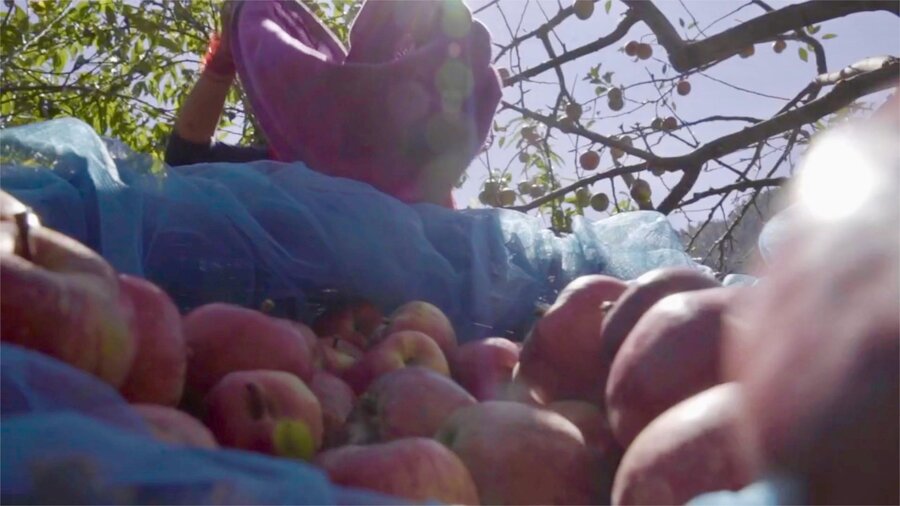
The women learned about drip irrigation and other practices to improve water management, and how to sustainably increase their apple harvests. They also received climate-resilient apple saplings and were linked with agricultural marketing cooperatives to better access buyers. A warehouse constructed under the programme allowed them to store their apples longer, thus boosting post-harvest sales.
When the Government introduced weather-based crop insurance for smallholders in the area - offering farmers cash compensation for climate-related crop losses - Tara quickly signed up to the scheme. It sees Nepalese authorities covering 80 percent of the annual premium and WFP covering the rest.
“I am very proud that I am the first farmer insured for agriculture in Jumla,” Tara says, referring to the district where she lives.
Climate insured
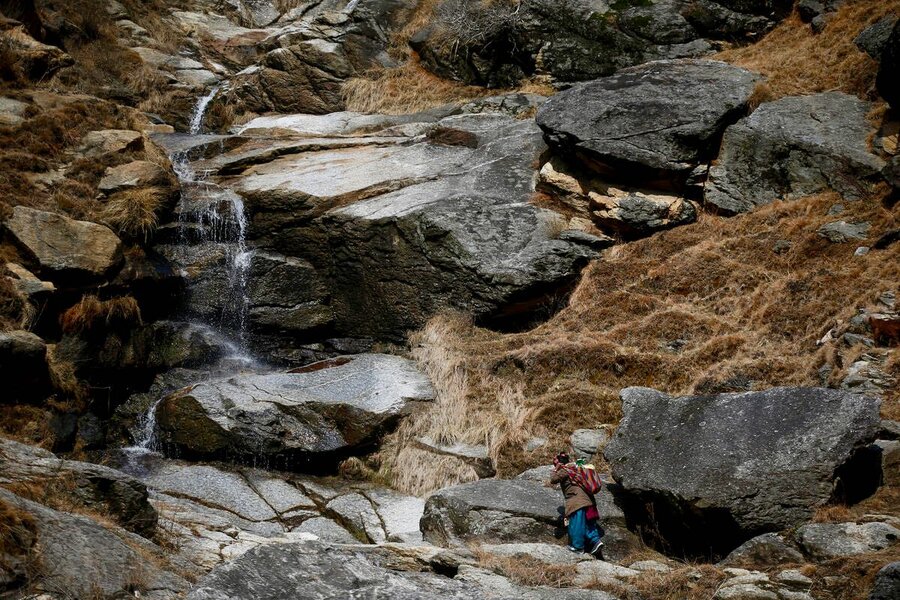
Last year, when severe drought wiped out dozens of apple saplings, she received an insurance payout, which she plowed back into her business.
By selling their produce as a group, Tara and her friends have attracted buyers as far as the capital, Kathmandu, where their apples fetch much higher prices than locally. The women use their money to buy food, medicines and other basics - and to invest back in farming.
They are diversifying their crops, adding tomatoes, onions and walnuts. Tara also started her own small chicken and rabbit farm. “All my chickens are from the local breed as they taste better than the broilers and fetch more money,” she says.
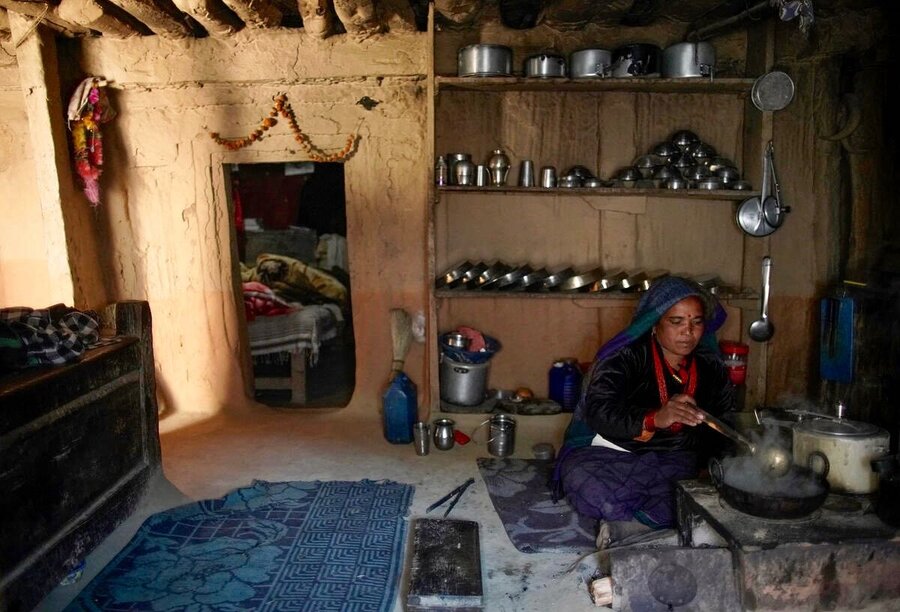
Today, Tara is better buffered against climate shocks, and she is seeing bigger crop yields, earning nearly US$700 this year from her apples alone. The income has enabled her to pay for language classes for her elder son, and for her youngest son’s private school tuition. There is even extra to send occasional gifts to her oldest married daughter.
“It’s been a long journey,” Tara says. “Nothing was easy.”
She is proud of living up to her name - which in Nepali, means shining star.



